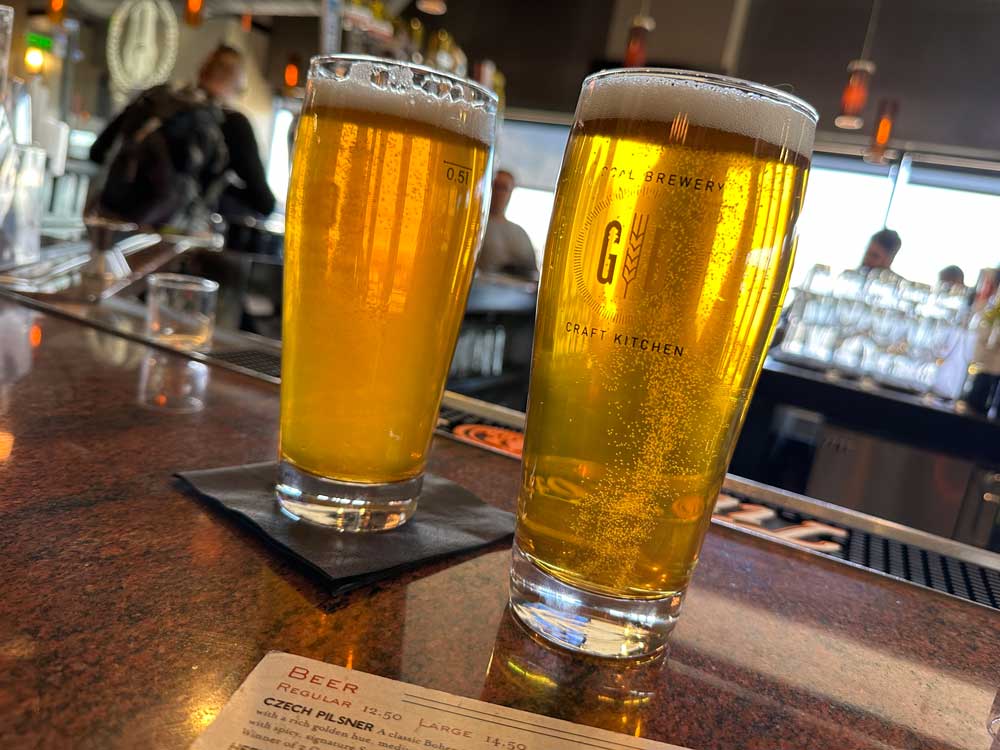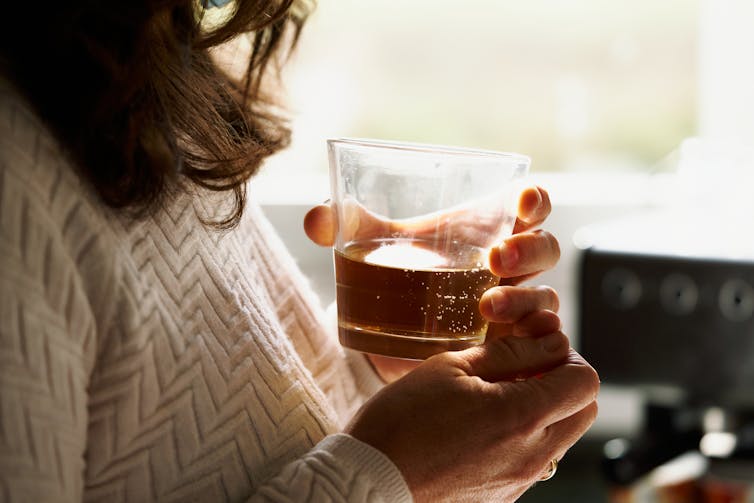
By Monica Swahn and Ritu Aneja
Did you know that casual drinks with friends or having a “wine mom” moment to unwind could actually be nudging up your risk for breast cancer? It sounds like a buzzkill. But it’s a truth that many might not know: Alcohol actually causes breast cancer.
The World Health Organization and the National Institute on Alcohol Abuse and Alcoholism lay it out pretty clearly: Compared to those who don’t drink, just one drink a day can bump up your breast cancer risk by 5% to 9%.
As alcohol and cancer researchers, we wanted to learn more about what women actually know about the connection between alcohol and breast cancer, especially since alcohol use has been increasing among women.
Explaining the knowledge gap
For our recently published research, we asked more than 5,000 women ages 18 and older across the U.S. in 2021 about whether they were aware of the link between alcohol consumption and breast cancer. We also asked them about their drinking habits and other health and background factors.
We were surprised to find that only 1 in 4 of these women knew that alcohol is a risk factor for breast cancer. Even more concerning, 35% didn’t think there’s any link at all. Another 40% were sitting on the fence about it.

aire images/Moment via Getty Images
We also saw a knowledge gap based on age, education and race.
Younger, more educated women and those facing alcohol-related issues were more in the know about the link between alcohol and breast cancer risk than older, less educated women and those who have not drank in the past year. Black women were also less aware of the risk between alcohol and breast cancer compared to white women.
Drinking less lowers breast cancer risk
Despite the attempts of alcohol researchers, health officials and advocates to inform women about alcohol’s risks and its connection to breast cancer, our findings show that this message isn’t getting across to most people.
There are also pervasive myths about the benefits of alcohol use because some people don’t want to know that drinking can cause harm and don’t want to talk about it. As a result, many women simply don’t know or are uncertain of the health harms alcohol causes.
A comprehensive communication approach to increase awareness of alcohol’s harms and its link to cancer can help support and encourage women to make healthier choices regarding alcohol use.
Educational campaigns can help inform people from diverse backgrounds about alcohol and breast cancer risk.
Policy changes with respect to alcohol marketing, access and availability can also make a difference in people’s drinking patterns.
These policies may also address the “feminization” of alcohol marketing, which intentionally entices women to drink and purchase alcohol by normalizing or glamorizing heavy alcohol use and ignoring the health risks and harm caused. The World Health Organization recommends stricter rules on alcohol advertising and marketing along with higher taxes on alcohol to reduce alcohol-related harm.
Today’s culture may normalize dealing with life’s stresses by popping the cork.
But cutting down on alcohol is something that can make a difference in breast cancer risk. Stepping back and thinking about alcohol’s effects on your health can help you make informed choices about whether to drink or not.
![]()
Monica Swahn is Dean of the Wellstar College of Health and Human Services at Kennesaw State University. Ritu Aneja is Professor of Clinical and Diagnostic Sciences and Associate Dean of Research and Innovation in the School of Health Professions at the University of Alabama at Birmingham.





























DaleL says
Counterpoint: For all the “research” done concerning alcohol and health, the “findings” are all over the place. A few years ago, I visited the Czech Republic. The Czechs drink more beer and consume more pork per capita than anyone else in the world. In total alcohol consumption, their women are fourth on the planet. They also have a relatively high cigarette use. Despite this, their life expectancy is higher (82 years vs 80) than that in the USA and their breast cancer rate is lower. Obesity is a known risk factor diseases including breast cancer. Just 19.8 percent of Czechs are obese versus 42.7 Americans.
Benjamin Franklin wrote (translated from French): “Behold the rain which descends from heaven upon our vineyards, and which incorporates itself with the grapes to be changed into wine; a constant proof that God loves us, and loves to see us happy!”
Alcohol consumption in later life and reaching longevity: the Netherlands Cohort Study
https://pubmed.ncbi.nlm.nih.gov/32037449/
Alcohol and survival in the Italian rural cohorts of the Seven Countries Study
https://pubmed.ncbi.nlm.nih.gov/10922343/
“Men aged 45-64 at entry drinking about 5 drinks per day have a longer life expectancy than occasional and heavy drinkers.”
Pogo says
@Actual public service
Thank you, FlaglerLive.
Laurel says
Of course, anything that’s fun…
Hell, I should have been in trouble 55 years ago!